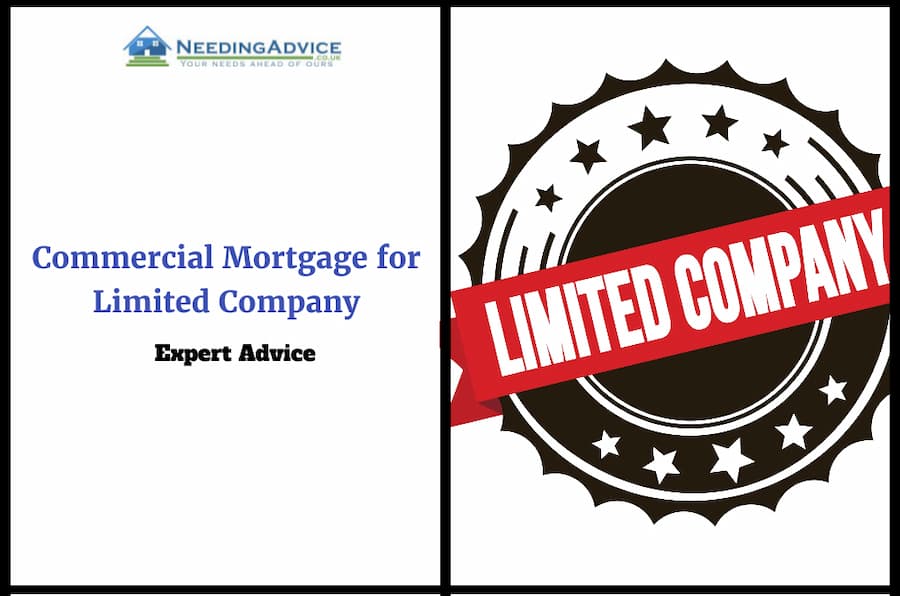A commercial mortgage for limited company is a key financing option for businesses looking to purchase, refinance, or expand into commercial property. Whether your company is acquiring premises for trading operations or investing in commercial real estate for income, this guide explains everything you need to know about how these mortgages work in the UK.
We’ll cover eligibility criteria, required documentation, repayment terms, and how lenders assess your application — including insight into the 2025 lending landscape, current base rate considerations, and what a limited company should expect from the process.
The article is updated as of April. 9, 2025
Risk Warnings:
The Financial Conduct Authority do not regulate commercial mortgages.
Commercial Mortgages by referral only.
Bridging loans are available through referral only.
What Is a Commercial Mortgage for Limited Company?
A commercial mortgage for limited company is a type of secured loan taken out in the name of a UK-registered business. Unlike a residential mortgage, this type of funding is specifically designed for the purchase or refinancing of commercial premises such as:
- Offices
- Retail units and shops
- Warehouses
- Mixed-use or investment business properties
The property must be used for commercial purposes, either by the company itself (owner-occupier mortgage) or to generate rental income through tenants.
See our range of commercial mortgage products for more details.
Who Is Eligible for a Commercial Mortgage?
A commercial mortgage for limited company is available to:
- Trading limited companies
- Special Purpose Vehicles (SPVs)
- Limited company landlords and property investors
- Businesses seeking to grow their property portfolio
Lenders will carry out detailed assessments of eligibility, looking at both the company’s financial health and, in many cases, the personal credit history of directors.
Key Features of Commercial Mortgages for Limited Companies
- Loan size: Typically from £50,000 upwards
- Loan term: From 3 to 25 years
- Deposit: Often 25–40% of the purchase price
- Interest rates: Fixed or variable rate loan options
- Repayment options: Interest-only or capital + interest
- Security: The property is used as a legal charge
Your lender may also assess your company’s business income, profitability, and how the monthly repayment will be serviced — especially if you’re using the premises rather than letting it.
What Types of Properties Can Be Financed?
A limited company can obtain a commercial mortgage for a variety of business purposes, including:
- Purchasing a shop or high street unit
Commercial mortgage for a shop - Acquiring a guest house or B&B
Commercial mortgage for guest house - Investing in short-term holiday accommodation
Commercial mortgage for holiday let
Commercial mortgage for AirbnbWhat is Airbnb? Airbnb is an online platform that allows pro... - Expanding a property portfolio as a limited company landlord
Commercial mortgage for first-time landlords
Required Documents for a Commercial Mortgage Application
When applying for a commercial mortgage for limited company, expect to provide:
- Certificate of incorporation and company number
- Full set of business accounts and bank statements (typically 1–3 years)
- Income declaration and proof of business income
- Asset and liability breakdown
- Details of directors and shareholders
- Proof of depositEvidence that a borrower has the required deposit to purchas... and source of funds
- Lease agreements (for investment properties)
- Property valuation report
Additional documentation may be required depending on your lender’s credit team and the complexity of your business operations.
Lending Criteria: How Lenders Assess Limited Companies
Lenders use a normal lending assessment approach, focusing on:
- The company’s creditworthiness and trading record
- The quality and stability of rental income (if applicable)
- Directors’ personal guarantees (often required for SMEs)
- Existing liabilities and company debt
- The purpose of the loan (trading vs. investment)
- Loan-to-Value (LTV) ratio
- Any additional costs, such as set-up fees, valuation fees, or broker fee
Some lenders may also assess your broader investment portfolio, especially if you’re a Portfolio Landlord.
Portfolio Landlords: Worth noting that some lenders have stricter stress-testing or different affordability assessments if you’re classified as a portfolio landlord (usually 4+ mortgaged properties).
Variable vs Fixed Commercial Mortgage Rates
- Variable rate loan: Interest rates may fluctuate based on the Bank of England base rate or the lender’s internal rate
- Fixed-rate mortgage: Offers stability but may include a breakage cost for early repayment
A broker can help you understand the product features, assess the repayment profiles, and choose a deal that matches your company’s financial circumstances.
What Fees Are Involved?
Typical fees associated with a commercial mortgage for limited company include:
- Valuation fees
- Broker cuts or broker on completion fees
- Legal services (including joint representation)
- Security fees and arrangement costs
- Potential repayment charges or prepayment fee
These costs should be factored into your overall borrowing costs to ensure the finance remains cost effective.
Benefits of Using a Commercial Mortgage Broker
A commercial mortgage broker provides access to a broad range of lenders, including those not available directly to the public.
Advantages include:
- Assistance with the lending application
- Understanding and meeting strict lending criteria
- Access to quick and cost-effective finance options
- Comparison of repayment terms, lender rates, and eligible products
- Support navigating legal representation and documentation
Speak with one of our mortgage advisers to get expert guidance tailored to your business.
Frequently Asked Questions (FAQ)
Can a limited company get a commercial mortgage?
Yes. Limited companies can apply for commercial mortgages to buy or refinance commercial premises, including properties used for trading or rental purposes.
Do lenders require personal guarantees?
In most cases, yes — especially for SMEs or companies with limited trading history. Personal guarantees reduce lender risk and strengthen the application.
What deposit is needed?
Most lenders ask for a deposit of 25%–40%, depending on the valuation, loan amount, and the company’s risk profile.
How do repayments work?
Repayments are usually monthly, and may be structured as interest-only or capital + interest. Options for capital repayment holiday or flexibility of repayments are available in some cases.
Are fixed or variable rates better?
This depends on your risk appetite. Fixed-rate mortgages offer repayment certainty, while variable rates may offer lower initial costs but can fluctuate with the bank base rateThe interest rate set by the Bank of England, affects the in....
Final Thoughts
A commercial mortgage for limited company is a strategic financing tool for purchasing, refinancing, or expanding into commercial property. Whether you’re a trading business or a professional landlord, understanding your options and preparing your documentation thoroughly is key to success.
Working with a broker ensures you access the best products available, stay compliant with all legal services, and reduce your total borrowing with borrowing offered.
Get in touch with our dedicated team today to explore the best commercial mortgage deals for your limited company.



![Do I Need a Salary for a Bridging Loan in the UK? [2025 Guide]](https://www.needingadvice.co.uk/wp-content/uploads/2025/04/Commercial-Mortgages-for-Start-Up-Businesses-3-500x383.jpg)



Leave A Comment